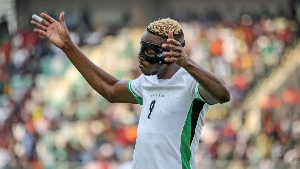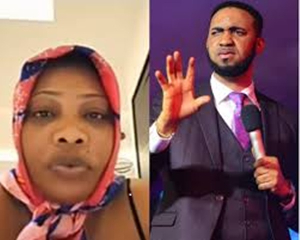National Chairman of the Independent National Electoral Commission (INEC), Prof. Mahmood Yakubu, on Tuesday expressed dismay that even though polling units in the country are inadequate, some of them are located in politicians’ homes, forests and shrines.
He sought an increase in the number of polling units across the country to enable voters have easy access to them during elections.
The INEC chairman averred that the nation’s voting population is expected to hit 100 million in 2023.
He urged the National Assembly to support the commission’s efforts to create additional polling units across the country.
Yakubu stated this during a “presentation on the state of voter access to polling units in Nigeria” at the National Assembly.
He regretted that no additional polling units have been created in the last 25 years, a situation he said had made existing polling units to be overcrowded and non-conducive for voters and electoral officials during polls.
The INEC chairman noted that the right of the people to vote must be complemented with access to vote.
“Access to voting gives meaning to the right to vote; otherwise, that right is essentially meaningless.
“We have had a quarter of a century – 25 years – in this country without change. The existing polling units of 119,973,000 were established back in 1996 by the then NECON, the defunct National Electoral Commission of Nigeria.
“They are no longer adequate in number; they are not conducive to voters to vote freely, fairly and safely, especially in the context of the COVID-19 pandemic.
“They are not even suitable for the commission to properly manage elections and ensure that rules and regulations are strictly applied.”
On the lack of access to polling units, the INEC chairman said this includes overcrowding, electoral violence and the declaration of some elections as inconclusive.
“They are unhealthy for voters and officials. Some are located in conflict areas, homes of political chieftains, forests and even shrines. We have to do something about this as a people and as a nation,” Yakubu said.
He said the situation led to a voter decline of 17 per cent between 1999 and 2019.
“So, one election after another, the voter turnout keeps declining,” he said.
Senate President Ahmad Lawan assured the INEC chairman and fellow Nigerians that the National Assembly would support the commission to provide a better voting environment for voters across the country.
Lawan said: “Whatever it takes, we will do because democracy is about participation by the people and voting is probably the most important thing a citizen could do in deciding who leads him or her.”
Speaker Femi Gbajabiamila, who was represented by House Leader Alhassan Ado Doguwa, said: “The National Assembly remains committed to electoral reforms to improve the way we elect the men and women that superintend our national affairs.”
General News of Wednesday, 3 March 2021
Source: thenationonlineng.net













